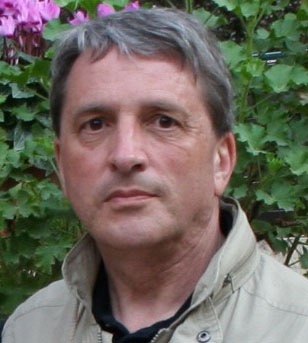by Gary Mintchell | Jul 3, 2020 | News, Organizations, Workforce
This recap of Hewlett Packard Enterprise’s (HPE) annual Living Progress Report for 2019 wraps up thoughts and coverage of all the many virtual conferences I experienced in June. The communications teams from all the companies worked hard and had to experiment in real time to bring out the best alternative to just completely shutting down.
These thoughts center on ethics—something given my experience in business I thought I’d never be writing about. If there were two institutions within which I worked where ethics was merely a word in the dictionary, they were business and church.
Thankfully that situation is changing, and this report from HPE is encouraging. I’ve met many people within the company. I don’t think this is superficial marketing-speak.
The report demonstrates HPE’s ongoing commitment to being a force for good by equipping customers with sustainable technology solutions, upholding HPE’s own high Environmental, Social and Governance (ESG) standards across its value chain, and prioritizing company culture to fuel business outcomes by unlocking the innovation of team members.
“Our team members’ passion, ingenuity and resilience enable us to create technology solutions to tackle the many pressing challenges facing society today,” said HPE President and CEO Antonio Neri. “Current discussions around systemic racism, inclusion, and diversity demonstrate the importance of taking bold actions to create a more equitable and sustainable future. We are proud of our progress and committed to do more as a company and in partnership with our peers, customers, and partners.”
In 2019, HPE intensified its strategic focus on culture and launched the “Work That Fits Your Life” program to support a more inclusive workplace that values team members’ experience inside and outside of the workplace. New benefits include six months of paid parental leave for mothers and fathers, career reskilling and transition support, and a company-wide shortened work day once a month on “Wellness Friday”.
From the release:
HPE is investing in human capital because it wants to be a place where people can learn, develop skills and do career-defining work. HPE’s Executive Committee developed the “Work that Fits your Life” program in partnership with its Board of Directors, 54% of whom identify with one or more diverse groups. One of the key goals of the program was to drive inclusion in the workplace. And, the company began tying diversity metrics to executive compensation to further embed inclusion and diversity into the organization.
In 2019, HPE’s employee engagement score rose 10 percent and has risen an unprecedented 18 percent since 2017, and its team members clocked their one millionth hour of company-supported volunteer time since 2016. In addition, HPE offered opportunities to engage with more social impact activities through the inaugural HPE Accelerating Impact initiative.
This year’s Living Progress Report also, for the first time, details racial diversity statistics of its team member population, an important step in being transparent and addressing systemic bias and inequality in our society.
HPE announced that it would make its entire portfolio available as-a-service by 2022, a consumption model that can bring significant energy efficiency gains and cost savings to its customers by eliminating overprovisioning and allowing customers to pay for only what they use. In addition, service-based models allow HPE to maintain chain of custody over equipment to ensure recovery and refurbishment, reducing physical waste and the need to source substances of concern. In 2019, 88% of the nearly four million assets returned to HPE’s Technology Renewal Centers were given a new life, but shifting to more consumption-based solutions is predicted to dramatically reduce the consumption of unnecessary IT assets.
HPE remained on track to meet all of its 2025 climate targets, having reduced its carbon footprint by 47% in just four years. The company also introduced a new emissions reduction target for its transportation logistics footprint – aiming to reduce the footprint by 35% by 2025. It also continued to see opportunity to help customers thrive in a carbon constrained world – with efficient IT products and services representing nearly USD $7.7 billion in revenue in 2019.
HPE continued to hold suppliers to high environmental, social and ethical standards. In 2019, HPE’s supply chain audit and assurance improvement program touched over 133,000 workers and the company guided 51% of its suppliers on how to set their own science-based climate targets. In addition, HPE sought to promote inclusion and diversity through its supply chain by spending approximately USD $1 billion with small enterprises and minority, women and veteran-owned businesses in the United States.

by Gary Mintchell | Sep 6, 2019 | Leadership
Oh, the crunch enhancer? Yeah, it’s a non-nutritive cereal varnish. It’s semi-permeable. It’s non-osmotic. What it does is it coats and seals the flake, prevents the milk from penetrating it. Clark Griswold in National Lampoon’s Christmas Vacation
Technology is for the benefit of humans. It has been ever since some human figured out a better way to trap a gazelle or plow a field.
Except for my wife, who hates soggy cereal, how much benefit is there in cereal varnish?
Or the product manager at Facebook working with engineers and psychologists figuring out ways to keep attention fixed on the app so that an additional few ads can be served up?
Or the engineers doing some fantastic work on digital voice recognition which could do great good for disabled people or help in dangerous situations instead figuring out how Alexa can spy on people 24 hours a day to accumulate data on when people are home to be sold to telemarketers or to governments to find terrorists or political opponents?
Ethics at work concerns developing things for the benefit of people and society. But weapons developed for defense could also be used offensively. Something good could be used to corrupt us. Or undermine us.
Ethics is both what we do and what we fail to do.
Mostly ethics should be in our awareness. At the end of the day one question we can ask ourselves, “What did I do for the good today? Where did I fail to act where I could have made a difference for the good?”

by Gary Mintchell | May 25, 2018 | Automation, News
It’s Friday before Memorial Day and I’m catching up on a number of items I’ve read this week concerning automation and ethics.
- GPR
- AI (Eric Schmidt / Elon Musk)
- Robot Market
- Automation Tsunami
- Rockwell Automation OPC UA
- Schneider Electric Triconex
- Peaceful Fruit
GDPR
Marketing people lust after your information. Trust me, I was in the business. If a magazine or website can collect your email address and provide (sell) it to a marketer, fantastic. If they can add name, company, address, and telephone number(s), all the better.
Some companies have treated you (us) like a commodity to be harvested and sold. Now in the wake of the European GDPR regulation, companies have been flooding us with emails telling us that, while in the past they may have done all that to us, in the future they’ll do less of it—maybe. Makes me wonder about all of them.
As for me—I have an email list of people who have signed up for my occasional newsletter. I use them only for that. No one besides me sees it.
Artificial Intelligence
Remember the old Groucho Marx line, “Military intelligence is an oxymoron”? Well, how about adapting the phrase to modern times? “Artificial Intelligence is an oxymoron.”
I wrote a little about that yesterday. Scanning my news items today, I see Eric Schmidt contesting with Elon Musk on the subject—“Elon is just plain wrong.” Yep.
Robot Market
According to Tractica, a market intelligence firm, Consumer Robots, Enterprise Robots, Autonomous Vehicles, and Unmanned Aerial Vehicles are expanding their share of the $52.7 billion annual robotics market.
A new report finds non-industrial robots represented 70% of the $39.3 billion robotics market globally in 2017, growing from a 64% share in 2016. By the end of 2018, the market intelligence firm expects that non-industrial robots will rise to 76% of the total market, which will have grown to $52.7 billion by that time.
Tracticas analysis finds that most robotics industry growth is being driven by segments like consumer, enterprise, healthcare, military, unmanned aerial vehicles (UAVs), and autonomous vehicles.
The epicenter of robotics continues to shift from the traditional centers of Japan and Europe toward the emerging artificial intelligence (AI) hotbeds of Silicon Valley and China.
Tracticas report, Robotics Market Forecasts, covers the global market for robotics, including consumer robots, enterprise robots, industrial robots, healthcare robots, military robots, UAVs, and autonomous vehicles. These categories are further segmented into 23 robot application markets. Market data within the report includes robot shipments and revenue segmented by world region, application market, and enabling technology. The technologies included in the attach rate analysis are machine vision, voice/speech recognition, gesture recognition, and tactile sensors. The forecast period for this report extends from 2017 through 2025. An Executive Summary of the report is available for free download on the firm’s website.
“Automation Tsunami”
Steve Levine in Axios Future of Work newsletter reports, “There is barely a peep from Washington in response to a widely forecast social and economic tsunami resulting from automation, including the potential for decades of flat wages and joblessness. But cities and regions are starting to act on their own.”
What’s happening: In Indianapolis, about 338,000 people are at high risk of automation taking their jobs, according to a new report. In Phoenix, the number is 650,000. In both cases, that’s 35% of the workforce. In northeastern Ohio, about 40,000 workers are at high risk.
Check it out on his website. I have mixed feelings on the issue. On the one hand automation has replaced humans in dull, dirty, and dangerous tasks. And…we are facing a coming labor shortage if demographic data suggestions hold out and politics inhibits immigration. On the other hand, we do have short term crises for people who can’t find work. That is a very real social and personal problem.
Rockwell OPC UA
I’ve written a couple of times lately about how Rockwell Automation has switched direction and adopted standard technologies OPC UA and TSN. It has just informed me that its FactoryTalk Linx software allows OPC UA communications across industrial IoT technologies from different vendors.
Companies can now take advantage of the OPC UA standard in Rockwell Automation products to achieve interoperability among their industrial IoT devices. Support for the vendor-neutral standard is provided through the FactoryTalk Linx communications software, which allows Rockwell Automation and third-party products to exchange data.
Schneider Electric Tricon update
Schneider Electric has released Tricon CX version 11.3, the most powerful version of its EcoStruxure Triconex safety instrumented system. This version embeds cybersecurity features within its flagship process safety system.
Peaceful Fruits
I am interested in good products, ethically produced, that perform a social good. I’ve invested in a local coffee house that buys coffee from a distributor/roaster who buys directly from the farmer. Not only does the farmer (and his workers) earn a living wage, the coffee is ethically grown, and also tastes great.
A message came my way this week about Peaceful Fruits. This young man joined the Peace Corps and worked every day for two years to make an impact on people’s lives in the Amazon rainforest. Living in the Suriname jungle, he worked jointly with indigenous tribes to build systems to preserve independence and sustainability.
It was here that Evan first tasted the acai berry — which grows naturally in the rainforest — and he decided to take the first step in helping to make advances in the food industry.
As the founder of Peaceful Fruits, an Akron, Ohio-based company specializing in whole fruit snacks, Evan speaks to this generation’s pursuit of nutrient-friendly, label-accurate, and eco-sensitive food. And with childhood obesity skyrocketing, it’s a great time to revisit which snacks our kids are eating on a daily basis. “The snack industry is slowly lurching forward because of increased consumer demand for healthier and more responsible options — and this is an opportunity to teach the next generation of kids that everyday food can be tasty, healthy and sustainable.”
His goal beyond changing the food industry is to educate and empower young people to pursue big goals that have big consequences. “Sure, I’m in the healthy fruit snacks business, but I’m really in the business of promoting wellness, sustainability and a cultural shift in how we think about what we put in our bodies.”

by Gary Mintchell | Sep 11, 2015 | Leadership
There is leadership for a brief season. Then there is sustainable leadership. Take a look at Bill Hybels at Willow Creek Community Church or Andy Stanley at Northpoint Community Church for example. Forget theology for the moment. These guys have staying power as leaders. I’d suggest checking out Stanley’s Leadership podcasts. There is one a month that always contains at least one thing you can incorporate into your leadership.
This week’s big leadership news is on the other side of the coin. I follow United airlines. I’ve been a Continental/United frequent flier for about 12 years. I’ve seen it in good times (when Gordon Bethune was CEO), sliding to mediocre times (when he was replaced by Larry Kellner a bean counter), and then straight downhill under Jeff Smisek (a mergers & acquisitions lawyer).
Suddenly this week, Smisek is out. Along with two other senior executives.
It’s been building for a while. There have been technical glitches. Employee morale is in the tank. Now there are discussions in the New York Times about ethics problems.
Bethune at Continental and Herb Kelleher at Southwest Airlines both focused on the customer and the employees. They did things to boost morale. They focused on customer satisfaction. This month’s Leadership podcast from Andy Stanley features Frank Blake retired CEO of The Home Depot. He also discussed customer focus first, employee focus next, and CEO self-focus last.
Sometime you get the idea reading the news that CEOs spend more time negotiating their own pay and perk packages than on thinking about how to lead the company.
Ethics problems continue to bring down high level executives, yet, many think they are immune. Until it all hits the fan.
Have you seen leaders flit from one program to the next. No sustainable initiatives. Worse, no focus on the customer or focus on the employee. You might get your millions, but how do you and your wife face the folks at the country club in the morning?
Solution? Focus on your customer. Know what business you’re in and what value you provide. Then provide it–with a loyal staff that feels supported and empowered.
Ethics and focus on others. Gee, that sounds familiar. Ancient wisdom that is still appropriate.

by Gary Mintchell | Nov 3, 2014 | Leadership
 My friend Jim Pinto became a well known automation industry pundit and consultant in his life after selling his company. He became the first columnist I recruited when starting Automation World magazine.
My friend Jim Pinto became a well known automation industry pundit and consultant in his life after selling his company. He became the first columnist I recruited when starting Automation World magazine.
Lately, he has chucked his old “blog” and changed directions. He’s writing much more about business ethics and larger topics.
His latest post Creeping Criminality tackles the ethical problems that can happen when one small decision leads to later larger decisions that go over the line from “tweaking the truth” to outright lying.
“In our society many people measure individual progress by steadily increasing wealth and the symbols of success. The bright and successful are envied and admired, the unintelligent and poor ignored and despised. To achieve success, we discover it takes more than brains and hard work–Sometimes it takes a propensity for pretense, the inclination to cut corners, take short cuts. The smarter a person is, the easier it is for them to tweak the truth. Overstating is acceptable.”
He hits a number of things in that paragraph. There is the “social Darwinism” (a 19th century concept that evolved following the publication of Darwin’s “Origin of the Species”).
Jim continues, “Few people are out-and-out cheats and liars – most drift into increasingly dubious behavior through insidious wealth addiction. Bluffing and amplification and become the norm. Many drift into tweaking results, expecting that they can explain away the discrepancy if and when their bluff is called. They fudge (stretch the truth), and then the fiddling turns to lying, which extends to cheating and stealing. This is ‘creeping criminality.’ Anyone is capable of cultivating creeping criminality. It grows and tends to become addictive.”
Just when I thought Jim was perhaps a little overly pessimistic, I ran across a blog I follow where the latest post was “Authentic Communication.” He begins by quoting Noel Coward, “It is discouraging how many people are shocked by honest and how few by deceit.”
This sounds like Mark Twain, “Always do good. This will please some people and shock the rest.”
My history in business is littered with many business owners and managers who pretty much flat-out lied to me. Several owe me money. Many went to great pains to describe how “Christian” they were during our time together.
What Jim describes is a real pitfall that we can slide into. On the other hand, I’ve met many people from CEOs of multi-billion dollar businesses to the small business owner down the street who are as ethical as can be.
I would take Jim’s post as a warning shot. Step back and look at your leadership. Are you telling the truth? Are your actions and words congruent–that is are you trustworthy? These are the foundations of leadership that matters. Let your business ethics speak to your leadership.









